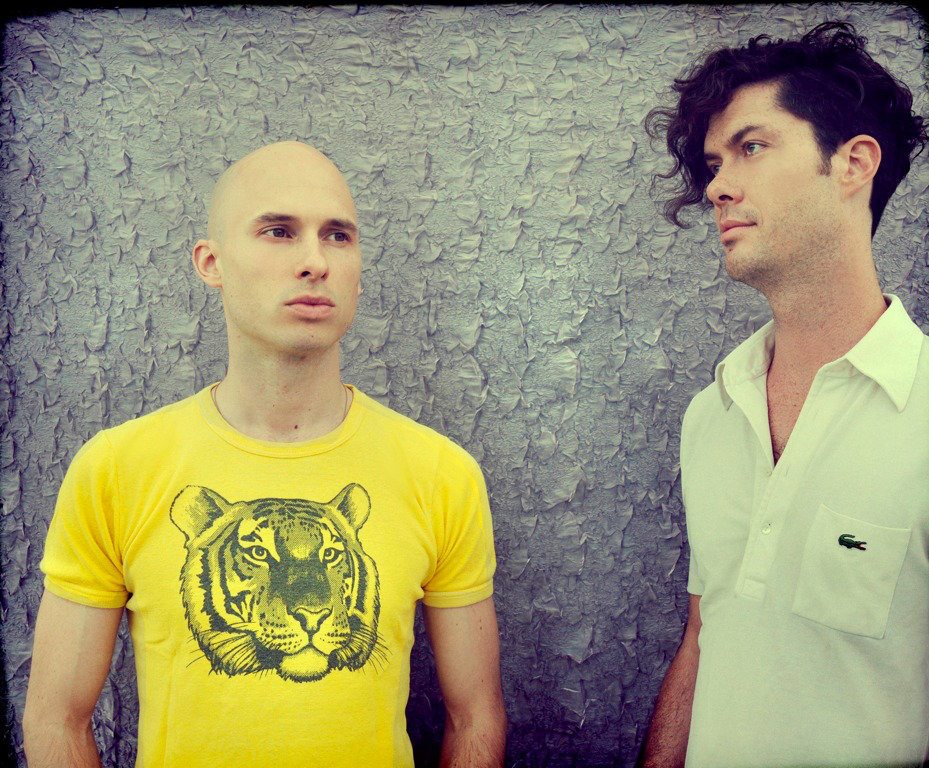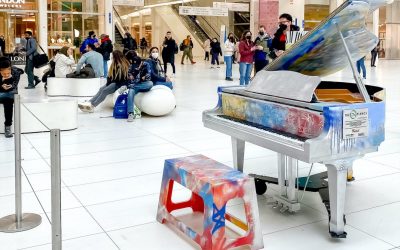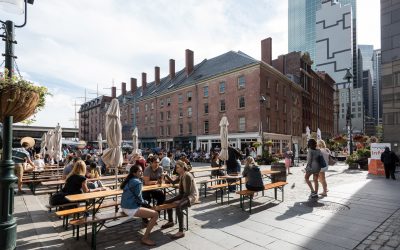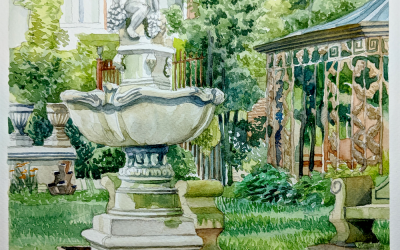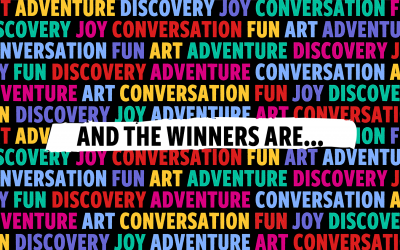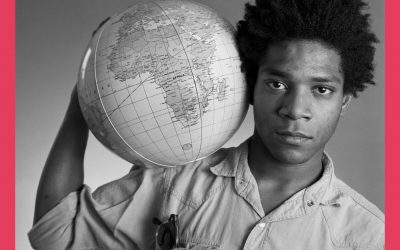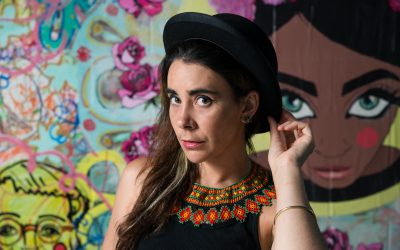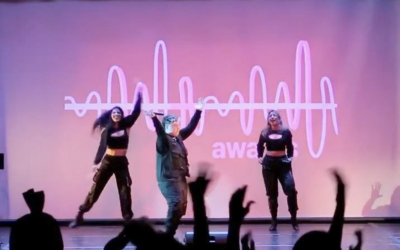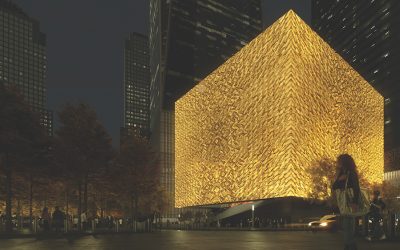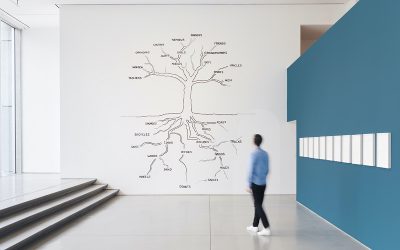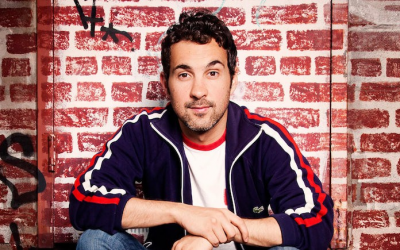 Back in my days of going to 50+ concerts a year, I had the pleasure of discovering a local rock band called Jupiter One. Signed to Cordless Recordings within the Warner Music Group, Jupiter One had a lot of its music placed within commercials, video games, and network television. The group disbanded in 2010, but its members since then have remained very active in a variety of projects.
Back in my days of going to 50+ concerts a year, I had the pleasure of discovering a local rock band called Jupiter One. Signed to Cordless Recordings within the Warner Music Group, Jupiter One had a lot of its music placed within commercials, video games, and network television. The group disbanded in 2010, but its members since then have remained very active in a variety of projects.
Dave Heilman, the drummer of Jupiter One, has been an in-demand musician for a number of years. Presently, he works with Sondre Lerche, Bernhoft, Sean Kiely, Davi Vieira, Jeff Taylor, and Fancy Colors. He was a member of Regina Spektor’s backing band for a few years, while still part of Jupiter One. Dave has also been in the pit band of a number of Broadway and off-Broadway productions, putting his skills of reading sheet music – undoubtedly part of his studies at New Jersey City University – to good use.
As an active and worldly – yet laid-back – gentleman, I figured Dave to be an ideal interview subject for a “Really Busy People” column. Dave did not disappoint one bit within our Q&A, and I was blown away by the “input/output” section of his “last words.” The response about preferred apps and tools was also particularly memorable.
For those in the New York City area looking to see Dave in-person, he’ll be at the Bowery Ballroom with Bernhoft on May 23. And for those looking to keep a digital relationship with Dave, he is indeed on Twitter and on Facebook.
What was your first paying gig as a musician?
Dave Heilman: My first paying gig as a musician was probably back in 1991. My very first rock band called Revolution — yeah, we were edgy — was playing its very first show at a club in Newark, New Jersey. The club was a shithole called Studio One, and we had to buy a certain amount of tickets upfront and then sell those tickets to our fans in order to get paid. It’s the oldest and cheapest trick in the book, but we had to do it to play a show.
It all sounds so silly, but it was definitely a huge moment for me at the time. The impact of having a show where we needed a “roadie,” there was a “backline,” we had a “set time”…I remember saying, “We have to go soundcheck,” and suddenly it hit me that those words were definitely the COOLEST words that have ever come out of my mouth.
While we checked our instruments on stage, I could see the headlining band in the wings waiting for their turn, and they were a group of adults! I was hit by another feeling that I was now in “the real world” and this was “life.” The jam band thing was a big deal at the time and this group had about eight members. It was pretty intimidating to have them stare at us, this small trio of teenagers playing original songs, while we clumsily tried to get through a soundcheck without the sound engineer yelling at us through the PA. We were playing original songs and two covers: Black Sabbath’s “War Pigs” and Bryan Adams’ “Run To You.” I wish I had a good reason for the Bryan Adams song, but irony wasn’t popular yet, so I guess we just thought we could really make that song sound metal.
At what point did you realize that you could make a living by playing with different artists? Not just pursuing one band?
D: Well, when I was in middle school and high school, I was pursuing that same dream that we all had of “making it big” with my rock band. Then I heard Tony Williams for the first time my senior year, and I realized that jazz was something I needed to explore; that’s when I decided to study it further in college. I joined a pretty serious rock band a few months after enrollment and we were doing that 90’s thing of chasing down a record deal, but I started to feel like rock music was pulling me away from my jazz studies. So after two sleepless years of trying to do both, my grades were suffering pretty badly in my theory classes and I realized something had to give. The art of studying jazz seemed to put me on a path towards becoming a better musician in a way that rock music wasn’t, so I quit the band to devote more time to my jazz and classical studies.
The conductor of the college symphony, Nick Cerrato, was the percussionist for Broadway’s Cats, and he took a liking to me, so I asked if he could help me become a more versatile musician. I was about 19 years old and something about the way he treated me in lessons made me think that I could actually have this other sort of career in music I hadn’t thought about before. I always wanted to find my own personal Led Zeppelin, but now I was getting excited about this new idea to become a “freelancer.” It somehow felt liberating. Suddenly, I had a lot more control and I could be in charge of my own life without putting my future in the hands — and habits — of four other bandmates. I started looking forward to a life of infinite musical combinations….and 20 years later, that’s still the case.
What’s the most bands you were ever in at the same time?
D: Hmm, I don’t really know, but it must be somewhere around seven. I know guys who play in double that amount, but I’ve always been more into the creative process and quality over quantity. That’s not to say that all 14 of the bands my friends may play with aren’t making good music; I’m actually referring to the sort of quality I can bring to the table. I just find it hard to be present and contribute a high level of passion and love to the music when I’m spread out so thin. An important part of what I do is getting to know the artist I play with. Not only who they are as a person, but who they are at that specific time.
Artists have certain energies at different points in the creative process, and it’s important to tap into that. I like to show up in the studio, or on-stage, and meet their music with the same intensity and spectrum that they are conceiving it in. That means taking the time to find out what albums they’re listening to, what their emotional state is, what aesthetic visions they’re imprinting on the music, etc. This sort of knowledge can only come from spending time with the artist, so I like going out for meals with them, listening to albums together, grabbing a drink, going to concerts or anything else that will help me connect to their mindset, and ultimately, their music. My goal is never to just make music, but to make meaningful music.
When it comes to juggling all of your gigs, are there any tools or apps that you rely on? Or a productivity system of some sort?
D: I don’t use any apps — technology has always been my [Mount] Everest — but I’m sure that there are many apps I should be using. The most helpful tool in keeping my head on straight has just been the ability to say “no.” One of my college drum teachers, the late Dave Ratajczak, once told me that the most common downfall of freelancers is the inherent myth that we should all be saying “yes” to anything that comes our way. I’ve always remembered those words and I steer clear of things that I can’t help elevate musically.
 These days, how much of your work comes through managers or agents, as opposed to direct reach-outs? Is a manager necessary for a sideman?
These days, how much of your work comes through managers or agents, as opposed to direct reach-outs? Is a manager necessary for a sideman?
D: I know some sidemen who use an agent, but that’s largely uncommon. Performing music you enjoy with people who elevate the art from is the best way to have your name cast out into the ether. Most musicians get called in through word of mouth and recommendations from other musicians, so it’s best to surround yourself with good players that you actually LIKE.
Do you feel that there any misconceptions about life as a touring musician?
D: I guess I’m too close to it to know what the conception of a touring musician is for most people, but I do know that the days of private jets and champagne bubble baths are — without a doubt — a VERY real and a large part of my life. (laughs)
I think that most people would assume the life of a touring musician is one of adventure, fun, bonding, and artistic fulfillment. I am completely in love with the touring lifestyle and it is absolutely every one of those things. However, someone once said, “A touring band is basically a moving company that gets to play music for 45 minutes every night.” At its worst, it can also be that.
Who are all the artists that you’re playing with at the moment?
D: I currently play with Sondre Lerche, Bernhoft, Sean Kiely, Davi Vieira, Jeff Taylor, and Fancy Colors. I also play jazz every Sunday with some really great musicians. Sondre Lerche and Bernhoft are both Norwegian artists who split their time between here and there, while all the other artists are permanent fixtures here in New York City.
How did you wind up playing with Sondre Lerche?
D: At the end of that run, Regina [Spektor] asked me to continue touring in her band and we had two great years of seeing some beautiful places around the world. We made loads of great music — as well as a LIVE album in London with an accompanying DVD — and in December of that year we played Rockefeller in Oslo, Norway. Sondre Lerche happened to be in town for a publishing thing and he joined us on stage for a song called “Hell No.” They both previously recorded that track for a movie Sondre scored, Dan In Real Life.
Though I’d never met Sondre before, we had a great time playing together. He was so jazz-influenced and improvisatory; flying by the seat of his bright blue pants in every moment and I really loved our interaction. I still remember the show and there’s footage on YouTube somewhere if you search “Regina Spektor/Sondre Lerche/December 2009.” We had a formal introduction after the show and we talked about playing together sometime when we’re both in New York City. It wasn’t until nine months later that we actually made that happen.
I was dating a girl in Florida and she was a HUGE fan of Sondre’s. She happened to send me a cover he did of an Animal Collective song called “Bluish” and I really liked it. I sent him a quick e-mail saying that I liked what he did with it, and then he wrote back something about how he was thinking of me lately and asked if I’d play drums on his next record. We got together at Saltlands studio for some demo sessions in August of 2010 and then took it to Rare Book Room in September for the self-titled record, Sondre Lerche.
I remember there was so much magic in that room with Sondre and his producer Kato Ådland, that we just never wanted the session to end. A few weeks later, Sondre asked if I’d go on the road with him and five years later, we’re still making records, touring all over the world, and having insane amounts of fun.
Do you have a favorite place to tour?
D: I sort of don’t. It sounds stupid, but I truly have a blast no matter where we are and the shows have a lot to do with that. I have confidence in the sort of performer Sondre is and together we can turn a good situation into a better one and a bad situation into an AMAZING one.
Purely speaking as a “seer of sights” I’d have to say I much prefer the mountainous regions of Scandinavia over some of the flatter parts of Europe. I love Brazil — for obvious reasons — and Australia and New Zealand remain favorites…Most of the time it’s the people that make a place special, so with that in mind, I have to say Bergen, Norway is at the top of my list.
Our latest tour took us to Svalbard in the Arctic Circle, where we made some history. We played a show at 79 degrees latitude in Ny Ålesund where we became the first band in the world to ever play a show that far north. Svalbard is beautiful and everyone MUST go experience that tundra at some point.
 Is there a particular experience from your career that you look at as your biggest accomplishment? Playing on SNL? Being on the top festivals and shows of Norway?
Is there a particular experience from your career that you look at as your biggest accomplishment? Playing on SNL? Being on the top festivals and shows of Norway?
D: Well, like most people, I like to think that my greatest accomplishment hasn’t actually happened yet, but I can easily speak to a moment where I felt like I “arrived.” As a kid, I would watch Late Night With David Letterman with complete and total reverence for exactly four minutes. Seeing my favorite bands play up close and personal in that “musical diorama” was always such a learning experience. I could wrap my head around the music in a much more tangible way watching those larger than life bands play a small stage with no smoke and mirrors. It was my favorite part of the night and I remember looking forward to being on that show one day. I just knew I needed to prepare for that moment and it sort of became the ultimate goal. Twenty-five years later, in November of 2011, we played the David Letterman show…That was a fantastic feeling.
Having been so many places, what is it that keeps you based in New York?
D: I’m actually based in Jersey City, and am completely in love with it. I was touring with a Broadway show called Swing! for a couple years, but in 2002, I started performing in the NYC production of STOMP so I needed to get an apartment. I wanted to live in a place that was close to the East Village, but also not too far from my family, so this was the best option. I had no idea how great the community was going to be and 14 years later, here I am.
I’ll admit that the drive home from Newark Airport has, at times, had me questioning why I live in such a concrete jungle. Especially after spending months in the most beautiful of places I’ve ever seen. But I guess the reason why I keep coming back is because of my family and all the artists and friends I spend time with. It’s extremely important to surround yourself with like-minded people so I stick with the crazy ones here in New York City; they keep me inspired.
Do you remember where the first live gig you ever played in New York was?
D: Yes, my first show was in 1996 at a place called The Lion’s Den on Sullivan Street. Years later it changed names to Sullivan Hall, but I have no idea what it’s called now…My filmmaker friend, Justin Ott, was attending NYU and he encouraged me to audition for a college band that posted “Drummer Wanted” flyers around his Hayden Hall dorm. The band was called Clockwize, with a “z” which obviously meant they were “edgy,” so I went for it.
The music was all pretty much Lenny Kravitz-influenced stuff — the lead singer happened to be Jewish with dreadlocks — and we booked our first gig at The Lion’s Den. My older sister and all her friends came out from New Jersey and I must say it felt like a really big deal. That place was such a shithole! It was perfect.
Coincidentally, that was the same place I heard my band Jupiter One play for the first time eight years later. It was one of their very first shows, and my friend and neighbor Mark Guiliani was playing drums at the time. I fell in love with a song Zac Colwell wrote and the drummer, Mark, was about to tour with a jazz group, so he handed the baton off to me. We sort of “officially” became a band in October of 2004 and were later signed to Warner Music Group in 2008. We put out two albums and had a blast before taking an indefinite hiatus in 2010. We started a new group called Fancy Colors, and the lead singer went forward with a solo project called Kishi Bashi.
What’s coming up for you career-wise?
D: My passion project, Fancy Colors, will be releasing our third full-length album this spring, so I’m looking forward to playing some more local shows here in New York this summer. I have some shows throughout the year with a great songwriter named Sean Kiely. I’ll be doing an American tour with the Norwegian soul artist Bernhoft in May, playing Bowery Ballroom on May 23rd, and then releasing the next studio album from Sondre Lerche in early 2017.
When you’re not obligated to be on the road as a musician, do you travel for fun?
D: I wish I did, but I actually don’t. The few times I have, it’s been REAL real nice and I should really do it more often. But most of the time I manage my plane tickets so I get to a city or country earlier than I need to, or I extend my stay later. I definitely feel it’s important to enjoy the traveling as much as possible, because that’s a huge part of life that I can’t do without.
When you’re not busy with your career, how do you like to spend your free time?
D: I typically just hunker down and get into a good workout routine, practice some new music on the kit, read great books, and catch up with my family and friends. I LOVE going to the movies and I’m there at least once a week.
Finally, Dave, any last words for the kids?
D: Do your best to take care of yourself physically and learn those fundamental skills early in your career. When life starts getting busy, you’ll want to focus more on bigger concepts and time becomes extremely valuable; the training you had early on will be an important part of getting you through busy times.
Think about where you want to be and not necessarily where you are. Things like posture, and wearing earplugs will become hugely important if you find yourself in a 35-year music career.
Stay away from high-conflict people and stress in general; that shit will kill your creativity.
Think about things in terms of “input” and “output.” Try to balance your daily routines around a healthy dose of both. Checking e-mails, text messages, Instagram, Facebook, Twitter, etc. are all forms of “input,” so before you start your morning with these, try to utilize a healthy amount of “output” first. You can practice your instrument, or write in a journal, or draw a picture; anything that utilizes your brain for creating something instead of receiving something. Going for a run or any form of exercise will also be good to get your mind in a good space…
Learn from the greats and do your best to emulate them, but the sooner you accept your own individual sound, the sooner you’ll find happiness and start to grow as an artist.
Be a good musician, but work on being an even better human being. That should always come first.
I could go on, but I’ll stop here…Thanks for the interview Darren!
-by Darren Paltrowitz

